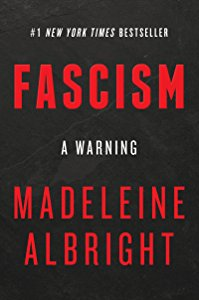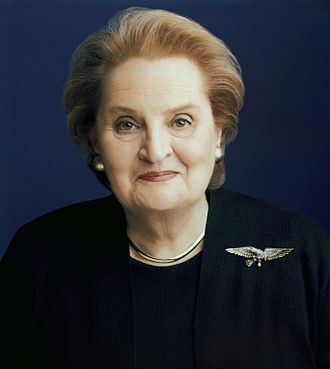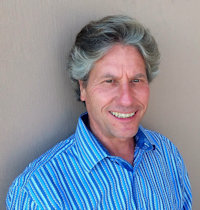Fascism: A Warning

from amazon.com
#1 New York Times Bestseller
A personal and urgent examination of Fascism in the twentieth century and how its legacy shapes today’s world, written by one of America’s most admired public servants, the first woman to serve as U.S. secretary of state
A Fascist, observes Madeleine Albright, “is someone who claims to speak for a whole nation or group, is utterly unconcerned with the rights of others, and is willing to use violence and whatever other means are necessary to achieve the goals he or she might have.”
The twentieth century was defined by the clash between democracy and Fascism, a struggle that created uncertainty about the survival of human freedom and left millions dead. Given the horrors of that experience, one might expect the world to reject the spiritual successors to Hitler and Mussolini should they arise in our era. In Fascism: A Warning, Madeleine Albright draws on her experiences as a child in war-torn Europe and her distinguished career as a diplomat to question that assumption.
Fascism, as she shows, not only endured through the twentieth century but now presents a more virulent threat to peace and justice than at any time since the end of World War II. The momentum toward democracy that swept the world when the Berlin Wall fell has gone into reverse. The United States, which historically championed the free world, is led by a president who exacerbates division and heaps scorn on democratic institutions. In many countries, economic, technological, and cultural factors are weakening the political center and empowering the extremes of right and left. Contemporary leaders such as Vladimir Putin and Kim Jong-un are employing many of the tactics used by Fascists in the 1920s and 30s.
Fascism: A Warning is a book for our times that is relevant to all times. Written by someone who has not only studied history but helped to shape it, this call to arms teaches us the lessons we must understand and the questions we must answer if we are to save ourselves from repeating the tragic errors of the past.
Author: Madeleine Albright

Madeleine Jana Korbel Albright[ (born May 15, 1937) is an American politician and diplomat. She is the first woman to have become the United States Secretary of State. She served from 1997 to 2001 under President Bill Clinton.
Albright currently serves as chair of Albright Stonebridge Group and as a professor of International Relations at Georgetown University's School of Foreign Service. In May 2012, she was awarded the Presidential Medal of Freedom by U.S. President Barack Obama. Secretary Albright also serves as a director on the board of the Council on Foreign Relations.
Reviewed by: Karl Homann

FASCISM: A WARNING by Madeleine Albright
Commentary by Karl Homann,
August 22, 2018
The word “fascism” has its etymological roots in a Roman symbol, the fascis, a bound bundle of wooden rods, sometimes including an axe with its blade emerging. The symbol originated in the Etruscan civilization and was passed on to ancient Rome, where it symbolized a magistrate's power and jurisdiction.
The image has survived in the modern world as a representation of magisterial or collective power, law and governance.
The sculptures on either side of the podium in the US Congress are Fasces. In fact, fasces occur also frequently elsewhere in US heraldry.
In the Oval Office, fasces are sculpted above the door leading to the exterior walkway. The official seal of the United States Senate has a pair of crossed fasces. Fasces ring the base of the Statue of Freedom atop the United States Capitol building. A frieze on the facade of the United States Supreme Court depicts the figure of a Roman centurion holding fasces, to represent "order”.
The National Guard uses the fasces on the seal of the National Guard Bureau. At the Lincoln Memorial, Lincoln's seat of state bears the fasces—without axes. The official seal of the United States Tax Court bears the fasces at its center. Four fasces flank the two bronze plaques on either side of the bust of Lincoln memorializing his Gettysburg Address. In the Washington Monument, a statue of George Washington leans on fasces.
And, then, of course, the symbol became ubiquitous in Europe, Hitler's Germany and Mussolini's Italy, in the 1930s and 1940s.
·
The history in her book, however, serves to point out some important facts, conditions and processes in the rise of fascism:
1.
2. Fascism does not happen all at once; it sneaks up on you step by step.
3. Fascist leaders are elected or appointed (as were Hitler and Mussolini ).
Despite being readily identified with Germany, Adolf Hitler wasn't a German national by birth. He was born in Braunau am Inn, Austria, on April 20, 1889. As extreme nationalism (a forerunner of fascism) rolled over Europe, Austria began conscripting young men into the military. To avoid being conscripted, at age 24, Hitler moved to Munich, Germany, in May 1913. Ironically, he volunteered to serve in the German army once World War I began.
4. And most importantly, fascism itself is not an ideology but rather a political attitude that uses any and all means to achieve its goals.
A fascist, observes Madeleine Albright, “is someone who claims to speak for a whole nation or group, is utterly unconcerned with the rights of others, and is willing to use violence and whatever other means are necessary to achieve the goals he or she might have.”
Her view is supported by Benedetto Croce, the Italian philosopher, who saw fascism in action:
… fascism [is] the political attitude that places the nation or race at the centre of life and history and disregards individuals and their rights… [an attitude] in which egoism displaces civic virtue, rhetoric dislodges poetry and truth, and the pretentious gesture (like Trump’s desire for a military parade down 5th Avenue) replaces authentic action.
Robert Paxton, a professor emeritus at Columbia University, … defines fascism in his 2004 book The Anatomy of Fascism as: A form of political behavior marked by obsessive preoccupation with community decline, humiliation or victimhood and by compensatory cults of unity, energy and purity, in which a mass-based party of committed nationalist militants, working in uneasy but effective collaboration with traditional elites, abandons democratic liberties and pursues with redemptive violence and without ethical or legal restraints goals of internal cleansing and external expansion.
Or as the documentary “Citizenfour” (watchdocumentaries.com) bluntly puts it: State power versus people power.
So, if we accept their definitions, which I do, we can examine historical and present-day government laws and actions for fascist tendencies, even if the law makers or powers ignored its implications and did not see it that way.
But then there are also willfully ignorant and, unfortunately, influential people, the likes of former Oklahoma Senator Tom Coburn who recently spoke at the annual convention for American Legislative Exchange Council (Alec) – a powerful right-wing organization that links corporate lobbyists with state lawmakers from across the country. Coburn said that the American republic is “failing” (recently rated internationally as a “flawed democracy”), and that a constitutional convention is the “only answer” to the problems the country faces today. (The last one took place 230 years ago in 1787.)
Or as Mussolini simply put it: Fascism is Corporatism
In NAZI Germany, ordinary people, like my father, would say, “We didn’t know.” Today, in the US and elsewhere, people say, “We don’t want to know” (denialism). Instead they hang on to their national myths of the Manifest Destiny and the “shiny city on a hill.”
When fascism comes…, it will be wrapped in the flag and carrying a cross. (Sinclair Lewis)
****
·
The whole continent of North America appears to be destined by Divine Providence to be peopled by one nation, speaking one language, professing one general system of religious and political principles, and accustomed to one general tenor of social usages and customs. Later known as the Manifest Destiny (a word coined in 1845 to justify the westward expansion of the colonial territories during the 19th century).
(Adams’ choice of the word “divine providence” is interesting because Adolf Hitler always claimed that “divine providence” saved him whenever an assault on his life failed and he escaped safely and unharmed.
In their negotiations with England, Adams and others explained the American policy towards the “acquisition” of Indian lands:
… [We] will not suppose that… [England] will avow, as the basis of their policy towards the United States a system of arresting their natural growth within their own territories, for the sake of preserving a perpetual desert for savages.
Manifest Destiny and the Indian Removal Act of 1830 were as fascist as the invasion by Hitler of Poland and Czechoslovakia which he justified as needing more “Lebensraum”.
While I agree with Albright’s definition of fascism, I do not agree quite with her later statement “that we are not there yet.” I believe that we are well on our way there.
Nicholas Clairmont on October 5, 2016 asked the question in an article of The Atlantic, Is Trump an Ur-Fascist? In his article, he posts a copy of a Trump tweet: @realDonaldTrump"@ilduce2016: “It is better to live one day as a lion than 100 years as a sheep.” – @realDonaldTrump #MakeAmericaGreatAgain" - 3:13 AM - 28 Feb 2016
Clairmont goes on to write that Crypto-fascism is scary, nationalist. “America First” and protectionist “trade war” impulses hurt economies, and the E.U.
(Crypto-fascism is the secret support for, or admiration of, fascism. The term is used to imply that an individual or group keeps this support or admiration hidden to avoid political persecution or political suicide.)
For example, “America First” sounds like the words of the first verse of the former German anthem, which today is no longer sung: “Deutschland, Deutschland
And in the UK, “Britain First” is a far-right and British nationalist political party and movement formed in 2011 by former members of the British National Party (BNP). The party is anti-abortion, nationalist, anti-Semitic and Christian fundamentalist. Except for the “anti-Semitic” label, the other descriptors certainly apply to the crypto-fascist Trump movement.
Madeleine Albright does not consider capitalism fascist; I do, unbridled unregulated toxic capitalism, that is. It serves only a few and marginalizes many. In fact, here is an interesting quote of Il Duce, Benito Mussolini:
Fascism should more appropriately be called Corporatism because it is a merger of state and corporate power.
Here are some other matters which I consider outright FASCIST, or at least crypto-fascist:
The continued occupation of Guantanamo Bay; the Helms Burton Act (1996) against Cuba, a sovereign nation, IS A FASCIST BREACH OF INTERNATIONAL LAW and was condemned by the Council of Europe, the European Union, Britain, Canada, Mexico, Brazil, Argentina and other U.S. allies that continue normal trade relations with Cuba. The invasion of Iraq; the bombing of Libya; Citizens United; blatant voter suppression; calling journalists the “enemy of the people”; separating children from their immigrant parents and holding them in caged “camps”; the populist and tribalistic political movements in Europe; the appointment of only right-wing conservative judges in Poland (sounds familiar?); the refusal of Hungary to accept refugees; Islamic travel bans; Brexit; the Israeli occupation of the West Bank; the 700 to 800 US military installations around the world; the use of these bases on sovereign foreign soil for drone strikes that kill civilians and spying on their host nations is fascist; the 57% increase in anti-Semitic harassment, vandalism and physical assault cases recorded in the US in 2017 over 2016.
From John Quincy Adams (1811) to today’s Guardian headline (August 21, 2018), Two U.S. Agents Fired into Mexico, Killing Teenagers. THAT IS FASCIM.
The Dagger Complex, a US military base in Darmstadt (Germany), is operated by the United States Army Intelligence and Security Command (INSCOM) on behalf of the U.S. National Security Agency (NSA) to spy on EU citizens, politicians, companies and investments. THAT, TOO, IS FASCISM.
Steve Bannon, U.S. President Donald Trump's former political strategist, who recently visited Europe to meet the leaders of right-wing, nationalist parties, and to forge a wide populist alliance to undermine the European Union, is a Fascist. But even the far-right Alternative for Germany (AfD) poured cold water on Steve Bannon’s plans. “We're not in America," Alexander Gauland, one of two co-leaders of the anti-immigrant party, told the Funke Mediengruppe newspaper chain in an interview.
Free” hate speech (Alex Jones and others) is fascist. Withdrawing from international treaties previously signed in good faith, is fascist. Calling Mexican immigrants “drug dealer, rapists and murderers” is fascist.
Ex-UK foreign minister Boris Johnson who calls Muslim women wearing Burkas “letter boxes” and “bank robbers” is a fascist. In response, a tory peer and former aide to David Cameron correctly calls Johnson ‘morally empty’ and accuses him of courting fascism (August 8, 2018 - THE GUADIAN).
US-backed Saudi airstrikes on families and children in Yemen, are fascist. Saudi Arabia’s and the Emirates’ plan to invade Qatar is fascist (The Intercept.com, July 2018). US supplied bomb killed 40 children on Yemen school bus: THAT IS FASCISM.
The annual study by researchers at Tel Aviv University, published on the eve of Israel’s Holocaust Remembrance Day, reveals “a toxic triangle made up of the rise of the extreme right, radical Islamism and a heated anti-Zionist discourse on the left” in Europe and around the globe.
****
DENIALISM
“Denialism” (or what I call “willful ignorance”), goes together with crypto-fascism, a term coined by Keith Kahn-Harris in his book entitled, Denial: The Unspeakable Truth, which will be published by Notting Hill Editions on 13 September. The book raises and hopefully answers the question, “What drives people to reject the truth?” From vaccines to climate change to genocide, a new age of denialism is upon us. In the psychology of human behavior, denialism is a person's choice to deny reality and to avoid a psychologically uncomfortable truth.
Why have we failed to understand it? Why do we continue to deny it?
In the words of young Ernest Hemingway, who lived through the anti-fascist fight against Mussolini in Italy (A Farwell to Arms) and the Spanish Civil War against Franco (For Whom the Bell Tolls):
But are there not many Fascists in your country? There are many who do not know that they are Fascists but will find out when the time comes.
****For me, the most important take-away from Albtight’s book and the associated research is that ”fascism” is not a specific political ideology but rather the form, the method, the means with which a given ideology is pursued or forced upon others. Hence there are nationalistic variations from Italian to British fascism. Or, on a broader scale, Social Fascism, Christian Fascism, Islamic Fascism and, yes, perhaps even “Trumpism”.
Reviewed by: John Stokdijk

Because influence in one arena often overlaps into others, I fear that the next U.S. president will inherit a world more inclined to follow Beijing’s lead not only on economic matters but also on lowering norms in such key areas as labor standards, media freedom, religious liberty, and human rights.
So here’s what doesn’t make sense. In November 2016, Obama’s favorability rating was the highest of his presidency— and yet the American Electoral College rewarded a candidate who insisted that the United States was going to hell.
